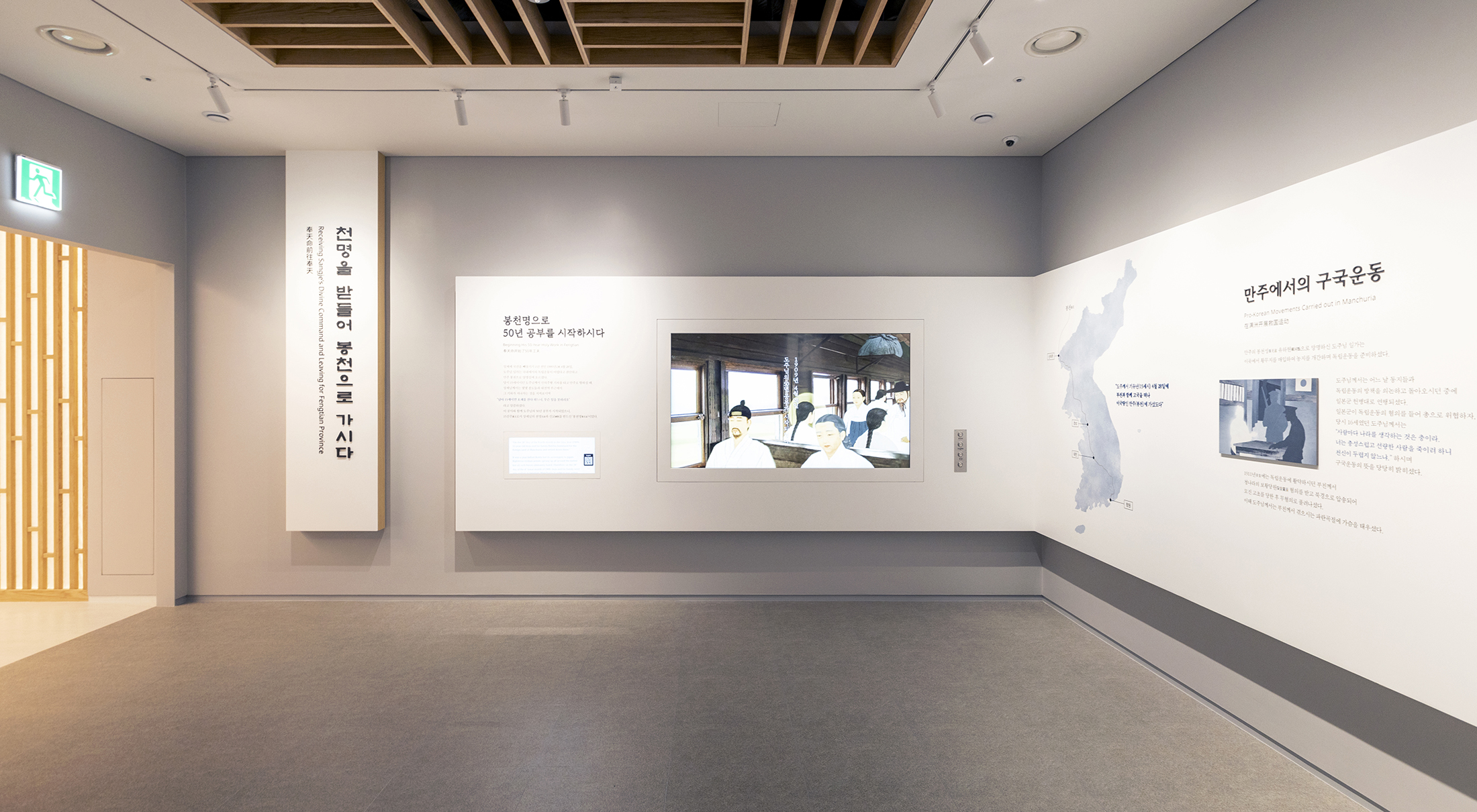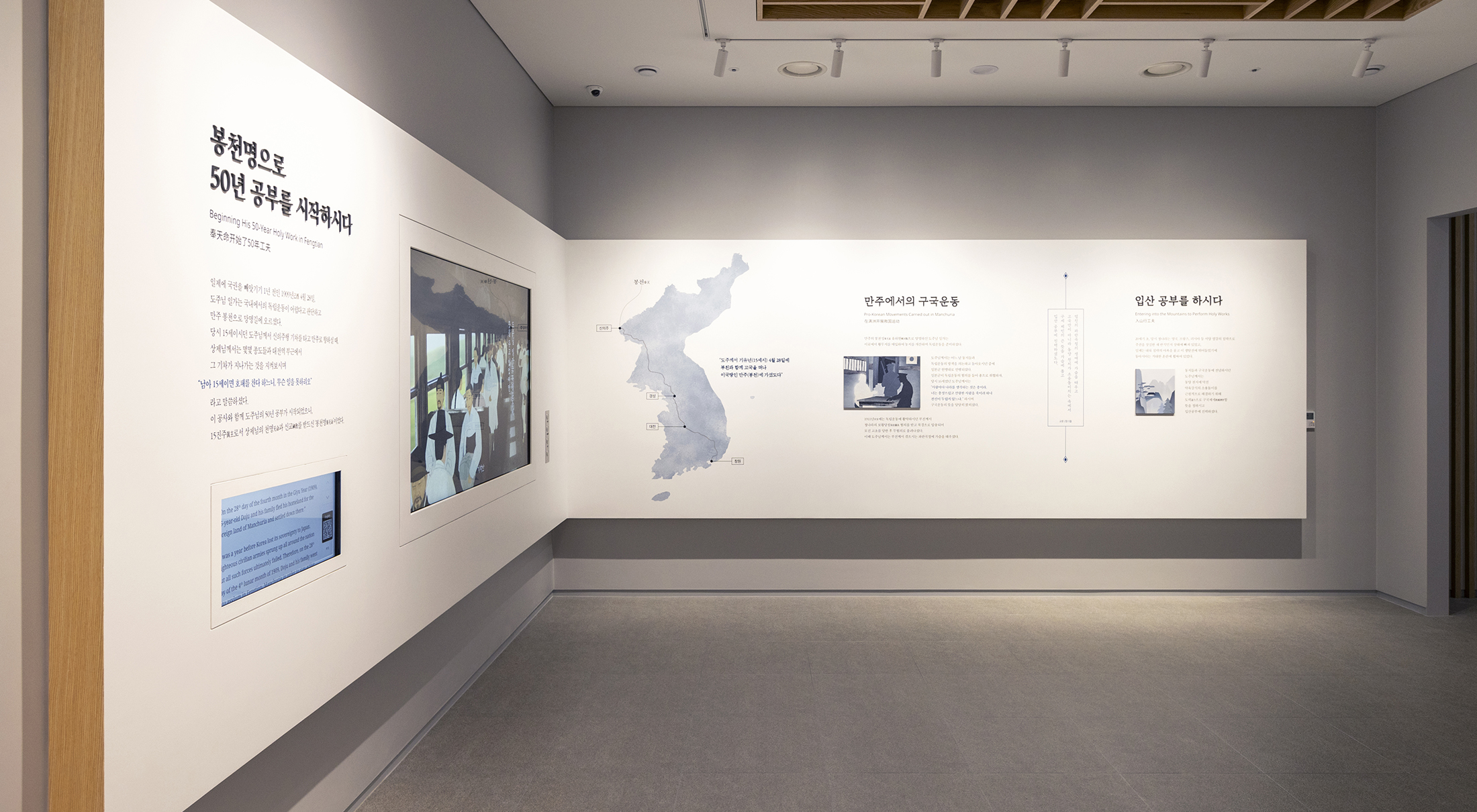The Completion of
the 50-Year Holy Work
-
Receiving the Bongcheon-myeong
and Beginning the 50-Year Holy Work
On the 28th day of the 4th lunar month of the Giyu Year (1909),
which was one year before Korea lost its sovereignty to Japan,
Doju and his family judged that it would be difficult
to carry out the independence movement against Japanese imperialism in Korea,
so they went into exile in Fengtian, Manchuria to continue their activism.
At the time, Doju was only 15 years old and took a train bound for Sinuiju to head to Manchuria.
While the train passed by Daejeon, Sangje watched it with some disciples and remarked,
“Nothing is impossible for a fifteen-year-old
as he is old enough to have an identity tag with him.”
With this Reordering Work, he began his 50-Year Holy Work.
This event was known as Bongcheon-myeong (the Mandate to Serve Heaven),
in which Doju emerged as the True Lord of 15
who would serve Sangje’s Heavenly Mandate and Divine Teachings.“On the 28th day of the 4th lunar month
of the Giyu Year (1909),
15-year-old Doju and his family fled his homeland
for the foreign land of Manchuria
and settled down there.”-
Pro-Korean Movements
Carried out in Manchuria
Doju’s family went into exile in Liuhe County, Fengtian Province in Manchuria,
and once there, they purchased wasteland to develop into farmland
and prepared for their independence movement.
In the Shinhae Year (1911), Doju’s father, who was active in the Independence Movement, One day when Doju and his comrades were returning
One day when Doju and his comrades were returning
after discussing policies for the independence movement,
he was summoned by the Japanese military police.
When the Japanese military threatened them at gunpoint
on charges of involvement in an independence movement,
Doju, only 16 at the time, challenged,
“Anyone who thinks of their country
is demonstrating loyalty.
Now you wish to kill a good and loyal man.
Are you unafraid of the gods in Heaven?”
His words exemplified the spirit of the national sovereignty
restoration movement.
was charged with being a member of the Royalist Party of the Qing Court and was sent to Beijing.
After being tortured, he was ultimately released without any charges.
At that time, Doju found himself swept along by all the ups and downs experienced by his father. - Amid a whirlpool of turmoil all throughout the East as well as in Korea,
Doju agonized over the turbulent life of his father.
Doju then entered a mountain area and devoted all of his energies
to self-cultivation guided by the great purpose of realizing salvation
for humanity and the world.
Progress of the Order 2:5 -
Entering into the Mountains
to Perform Holy Works
At the beginning of the 20th century, the Qing Court of China was reduced to a semi-colonial state,
having lost its sovereignty due to the invasions by Western powers like England, France, and Russia.
Additionally, Japanese imperialists also participated as invaders,
driven by their ambitions for continental conquest.
As a result, East Asia was plunged into significant turmoil.
 During that time, Doju dedicated himself
During that time, Doju dedicated himself
to the national restoration movement with his comrades.
However, he resolved to take further actions to rescue his country
while saving humanity through the power of the Dao.
His motivation was rooted in a desire to fundamentally resolve the turmoil
engulfing the East, a result of the pretext that might equals right.
With these convictions, he committed himself to retreating into the mountains
for self-cultivation.
The Completion of
the 50-Year Holy Work
1Doju’s Descent and Birth
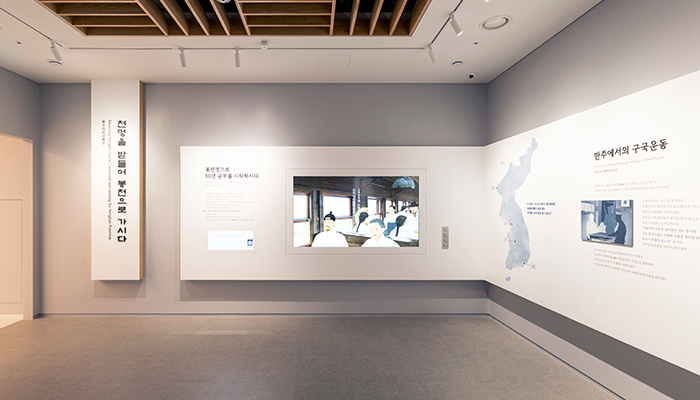
2Receiving Sangje’s Divine Command and Leaving for Fengtian Province
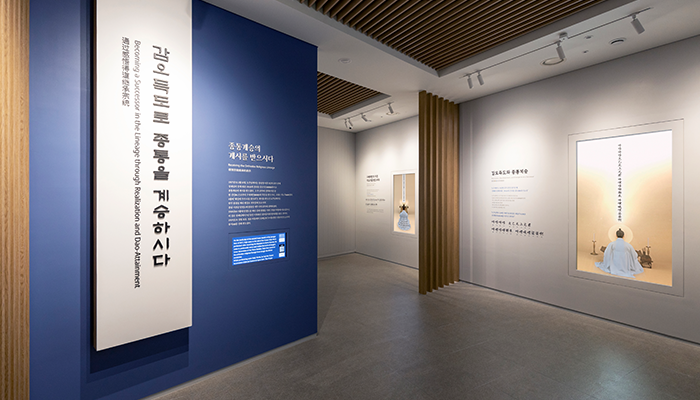
3Becoming a Successor in the Lineage through Realization and Dao-Attainment
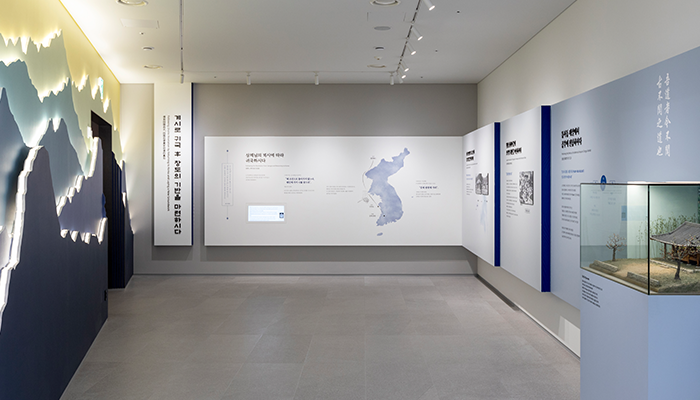
4Following Divine Revelation by Returning to Korea and Laying a New Groundwork
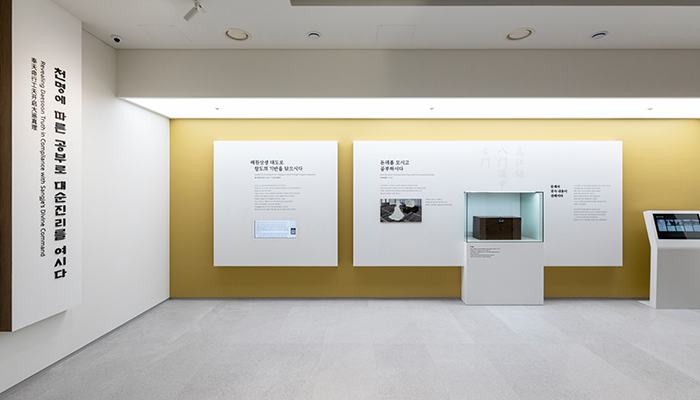
5Revealing the Daesoon Truth in Compliance with Sangje’s Divine Command
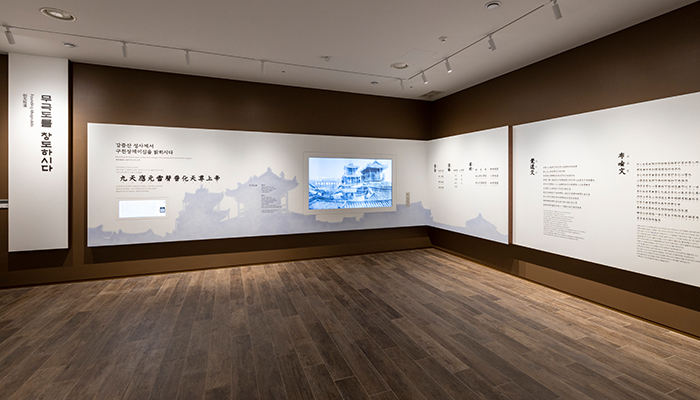
6Founding Mugeukdo
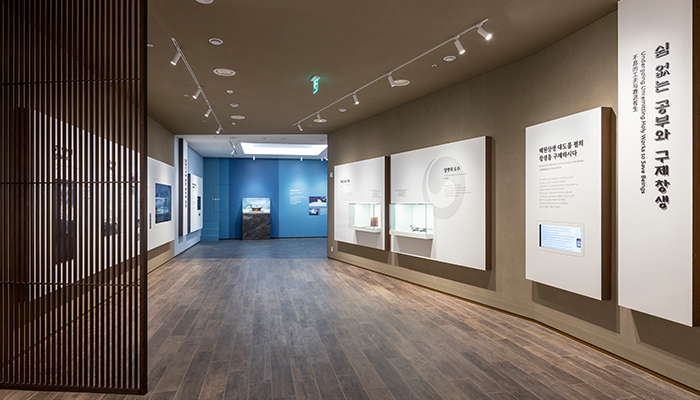
7Undergoing Unremitting Holy Works to Save Beings
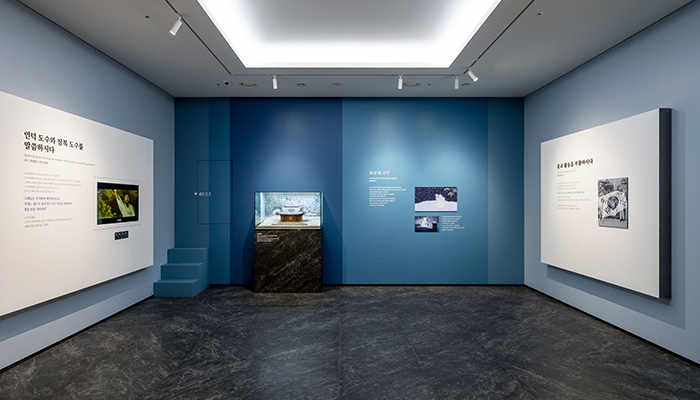
8The Holy Work at Hoeryong-jae Pavilion
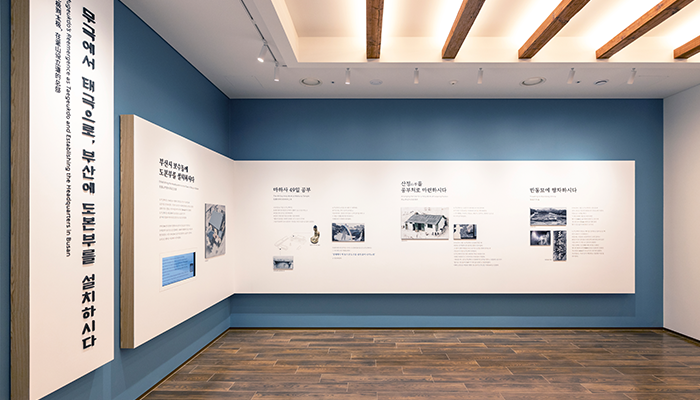
9Mugeukdo’s Reemergence as Taegeukdo and Establishing the Headquarters in Busan
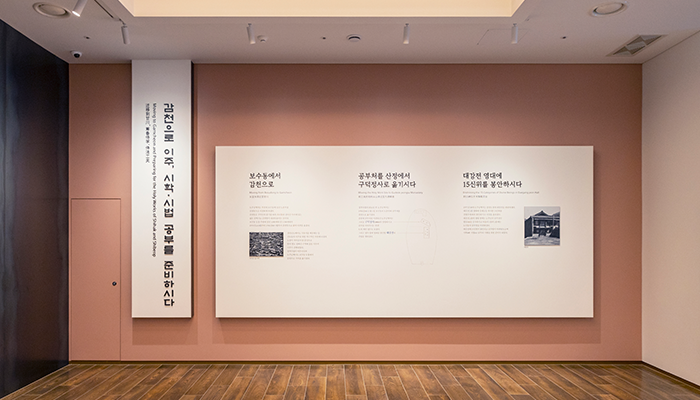
10Moving to Gamcheon and Preparing for the Holy Works of Shihak and Shibeop
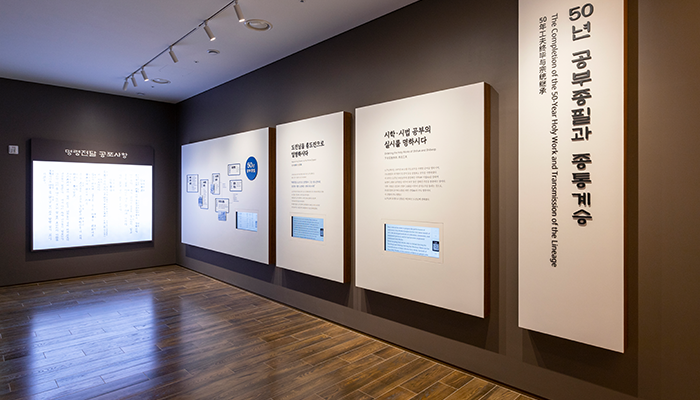
11The Completion of the 50-Year Holy Work and Transmission of the Lineage
-
Pro-Korean Movements

